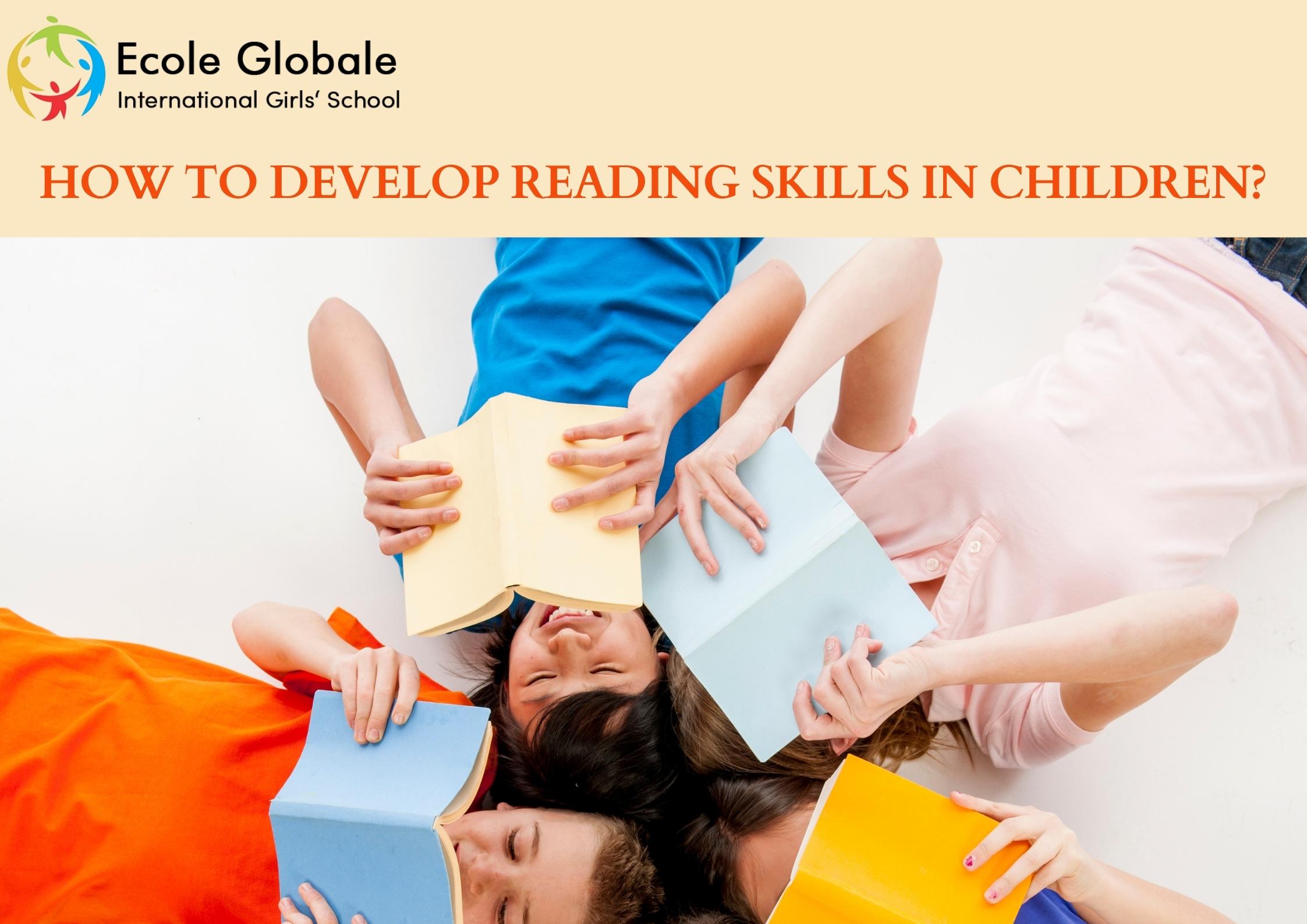How do you develop reading skills in children? Reading is most important in a child’s life. You will be surprised to know that reading also develops your child’s brain by increasing the blood flow and stimulating brain development. With the advancement in technologies, science has made it easier to improve children’s learning power by including basic concepts of science in their daily activities.
In today’s world, good reading skills are not enough. We all know that reading is the foundation for education and for a better future. Reading is for our knowledge as well as for our education and there’s always a relation between knowledge and education. However, many children hate reading. There are at least two reasons why children dislike reading: the first is laziness or trouble concentrating at home, the other reason is because of inefficient teaching methods!
Have you tried everything to get your child to read more, or have you wondered if they are reading when they say they are? I have been in both those situations, but with a little work and effort, we were able to develop good reading skills in our children. I was very happy to see that my oldest son took this natural love of reading into high school, where he also participated in the district reading competition for two years.
Are books important tool for knowledge and education? As there are many different kinds of books available today. While earlier books were written in a serious tone, recently there has been an increase in the number of humorous and fantasy books being published. This has made reading more popular among children and they develop an interest in reading them. A great way to make your kids enjoy reading at home is by finding some inspiring and interesting stories for them.
As a parent, what your child reads can do more than just improve their reading comprehension…it can shape the way they learn throughout their formative years. So what are the best books to get kids to read? Well, that really depends on where your child is with their reading skills. If they’re not quite ready to tackle chapter books, you’re in luck! There’s a wide world of picture books for children and teens out there.
The first step to developing reading skills is learning the alphabet. This can be done with the help of a teacher or parents. Reading skills can be developed by learning about the sounds of each letter, and how that sound combines with other letters to form words. In addition to this, it is important to teach children how to write their names and other words.
Children need to learn basic sight words as well as phonics. They also need to know how to read at a conversational level. Books, magazines, and newspapers are all good choices for developing reading skills. Children should be encouraged to read aloud at first, but eventually, they should be able to read silently as well.
The final step in developing reading skills is practice. It is important that children get used to reading on a daily basis. This will help them develop their own reading habits and become better readers over time.
Reading is a basic skill that most people take for granted. It’s a skill that children need to learn from an early age. While some children are born with a talent for reading, others will need more guidance and practice to develop reading skills.
The benefits of reading for kids
Kids who read regularly perform better in school, have a richer vocabulary, and are less likely to develop mental health problems later in life. Reading can also be useful for relaxation and bonding between parents and children. Reading is an essential part of childhood development, which is why it’s important to help your child develop reading skills as early as possible.
How to teach a child how to read
There are many ways you can help your child learn how to read. These include:
1)Practicing phonics – Learning phonics is one of the best ways for kids to start learning how to read. This involves teaching them the letter sounds used in the English language and helping them match those sounds with letters on the page. Phonics skills will also help them with spelling later on in life. You can use flashcards or games like Scrabble to practice phonics at home.
2) Read aloud to your kids
The best way to instill a love of reading in children is to encourage them to listen while you read.
Reading aloud has been shown to:
Help children learn new words and concepts; give them new ideas and insights; build their imagination; and expand their vocabulary and background knowledge.
3) Encourage pretend-reading
Pretend-reading is when children make up the words while they are flipping through the pages of a book. Although this may seem useless at first glance, it helps children understand that books have different parts: The front cover, the title page, and so on. Pretend-reading also teaches them about letters and stories.
For any queries related to parenting, schooling, or any student-related tips, click here to check out our latest blogs






